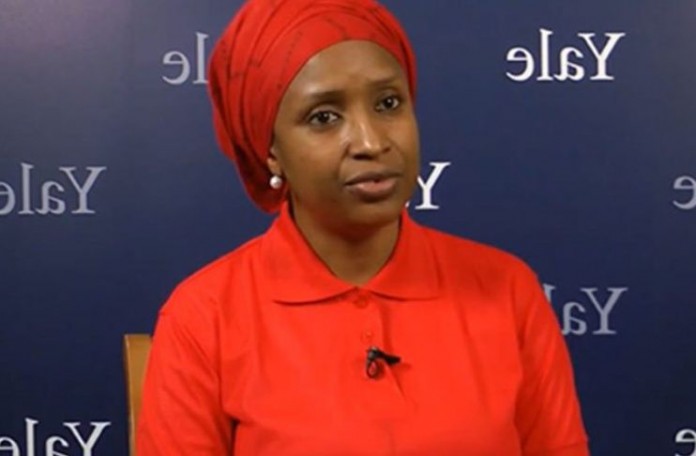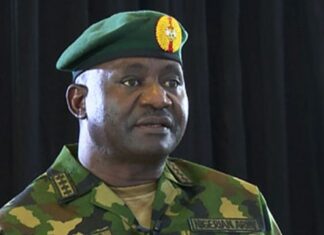By Uzor Odigbo
Maritime experts have pontificated more horrendous congestion as a result of increase in volume of port activities in the near future and the haphazard Port management system in the country.
They averred that the Federal Government’s efforts to fix the Apapa and Tin Can port access roads to address the problem of port congestion may only see the problem dissipate for about four or five years but the menace would return worse than the current state.
The veterans who were speaking at the maiden quarter business roundtable organized by MMS Plus Newspapers tagged ‘Economic Outlook: Quarterly Verdict’ with the theme; “Post Election Economy: Exploring Strategies for Growth” stressed that the port corridor must be reserved and restricted as an exclusive economic zone.
The Chairman, Nigerian Ports Consultative Council (PCC) Otunba Kunle Folarin said this at the event which took place on Thursday last week, at the MMS Plus International Image Centre, Festac, Lagos, also revealed that he has worked on the issue of port corridor for over sixteen years, yet he was unhappy that his predictions on the port corridor were correct.
“The port corridor should be a restricted economic zone. It is a place that should be exclusive for port operations.
“However, in Nigeria we have several residential houses surrounding the ports.
“Some of them are 10 meters from the port, so it is no longer a port corridor. Another issue is that a port is a transit area, a holding bay but not a storage area.
“It should be an area where ships discharge cargoes and the cargoes should leave the ports just as the ships also leave the ports.
” It is a transit area not supposed to hold onto a cargo or ship beyond a certain time” he said.
Speaking further on the issue, the veteran maritime analyst noted that the mechanism for port operations is multi-modal.
He stressed that the transit nature of the ports explain why demurrage is placed on ships and the containers bringing in cargoes and the containers stored in the ports also pay ground rent.
“Until we install a multi-modal concept and infrastructure at the ports, we would continue to have a recurring decimal of congestion at the ports.
” Within the port environment up to 4km should be only warehouses for cargoes, roads for movement of port cargoes by trucks or railway. There should also be a ring road exclusive for port operations” he said.
According to him, when the Oshodi-Apapa expressway was constructed, it was perceived that the road would only service Tin Can Island Port but it has become a municipal transport area and not just for port traffic.
“In a day, one million vehicles transit around Apapa, Oshodi and Ebute-Metta at the peak time.
“If the nation continues to prosper and the volume of cargo traffic increases, then Nigeria would discover that it is much difficult to manage prosperity than poverty” he added.
Meanwhile, the Chief Executive Officer (CEO), Quiet Dimensions Limited, Mr. Ime Udoma admonished the Federal Government to strengthen the commercial banks by allowing some public sector funds to be domiciled in such banks.
Although the introduction of the Treasury Single Accounts (TSA) has allegedly curbed reckless spending and corruption at most government parastatals, Udoma,who is an ex-banker, lamented that commercial banks have lost the capacity to disburse long term loans which was necessary to grow the small and medium sized enterprises (SMEs) and the nation’s economy in general.
“Banks can’t give loans anymore because the bulk of the money they receive is short term deposits. They can’t lend such short term deposits because at any point in time the depositors could demand the money.
“The Central Bank of Nigeria (CBN) creates money by printing it but commercial banks create money by giving loans. The government would have to return public sector funds to banks so that they could use it to expand the economy” he said.
Speaking on the agricultural programme, Anchor Borrowers’ Programme (ABP) which has reportedly created 2.5 million jobs across the country; he admonished the government to disburse the money through cooperatives.
“ABP has been suspended because the government has been unable to recover 10% of the monies given out in some states after five years.
“These people saw the money as national cake. However, the money could be easily recouped if it is disbursed through cooperatives such as farmers associations” he added.
On his part, the CEO, Kings Communications Limited, Mr. Kingsley Anaroke stressed that Foreign Direct Investments (FDIs) in the country had been limited by the frequent policy changes and the lack of confidence in the government.
“There are several people abroad who have shown interest in investing in Nigeria or finance one project or the other, however, the government policies keep discouraging them.
“I have made efforts to bring in some Koreans to finance a project but they came in and the problem was the Infrastructure Concession Regulatory Commission (ICRC) Public-Private Partnerships (PPP) model” he said.
Anaroke lamented that ICRC copied the PPP model from foreign countries but have refused to rejig it to suit the peculiarities in Nigeria.
“There was a time I was able to get investors ready to fix the Tin Can Port access roads and toll the road.
“The government hasn’t fixed the road because of paucity of funds as it hasn’t been factored in the nation’s budget in the last three years.
” I asked one of the Directors in the Ministry of Works if I could bring in partners to fix the road and collect tolls.
” The people were ready to construct the road to the best standards; invest and get their money back over a period of time.
“The Ministry declined that proposal because someone has to make some percentage when the road project eventually gets budgetary allocation” he revealed.
Earlier, the moderator, Mr. Biodun Eromosele said that CBN has struggled to align the fiscal aspect of the economy to the availability of funds, lamenting that the government had N2 trillion deficit.
Eromosele, who is the Editor, Transport and Maritime desk at THISDAY newspaper, posited that the oil sector which is a major driver of the Nigerian economy would continue to witness upward and downward swing because of the vagaries of the international oil market.
He stressed that the post-election economy for Nigeria was also clouded in uncertainty as the major opposition party was in court and they believe they have enough evidence to unseat the current government.
“An investor may not be willing to invest in an economy that isn’t stable as a result of the fact the major opposition is in court.
That uncertainty may remain until the issue is sorted out in the courts” he said













